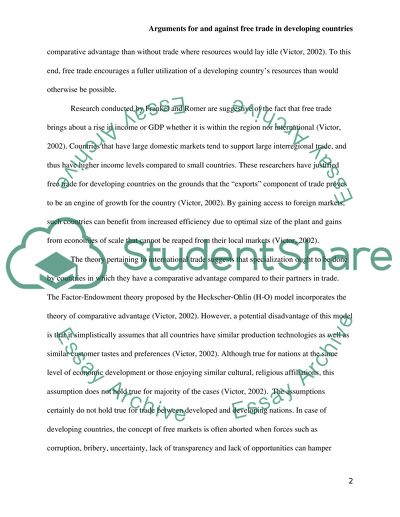Cite this document
(“Free Trade For Developing Countries Essay Example | Topics and Well Written Essays - 2000 words”, n.d.)
Free Trade For Developing Countries Essay Example | Topics and Well Written Essays - 2000 words. Retrieved from https://studentshare.org/macro-microeconomics/1439336-free-trade-for-developing-countries
Free Trade For Developing Countries Essay Example | Topics and Well Written Essays - 2000 words. Retrieved from https://studentshare.org/macro-microeconomics/1439336-free-trade-for-developing-countries
(Free Trade For Developing Countries Essay Example | Topics and Well Written Essays - 2000 Words)
Free Trade For Developing Countries Essay Example | Topics and Well Written Essays - 2000 Words. https://studentshare.org/macro-microeconomics/1439336-free-trade-for-developing-countries.
Free Trade For Developing Countries Essay Example | Topics and Well Written Essays - 2000 Words. https://studentshare.org/macro-microeconomics/1439336-free-trade-for-developing-countries.
“Free Trade For Developing Countries Essay Example | Topics and Well Written Essays - 2000 Words”, n.d. https://studentshare.org/macro-microeconomics/1439336-free-trade-for-developing-countries.


